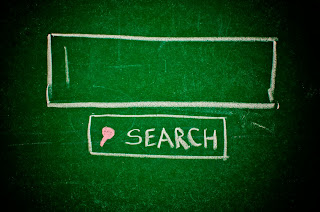To Google or Not to Google? And “My professor told us we can’t use
Wikipedia.”
Google is your key to all information, right? Google can
connect you to anything on the internet, right? Well, not really. There is a
lot of information, and some that you might really need, hiding behind
passwords in what is called the “deep
web.” If you are looking for journal articles, for example, you won’t find
most of them by searching Google. Even if you find them using Scholar Google,
which searches academic literature, you will often be asked to pay before you
can access the article. Luckily, NOVA Libraries has already paid for
access to thousands and thousands of articles and other resources. And often,
these resources will have higher quality information that what you can find
searching Google.
This is not to discount web sources altogether. Much
government information is freely available on the web. And many organizations,
such as news organizations and non-profits, put out some great information on
the web. Take a look at the 5 W’s to Determine
Good Information for ideas on how to evaluate information you find on the
web.
And when searching Google, try out their Advance
Search which gives you more control over your search.
What about Wikipedia?
The short answer: DO use Wikipedia
to get ideas for a research topic or to give yourself some background
information on the topic you have chosen. DO
NOT use Wikipedia as a source in your research papers and assignments. Wikipedia should not appear in your Works
Cited page. Look for more reliable sources, some of which you could even find
in the “References” section at the end of a Wikipedia entry.

Just in case you were still wondering if Google is all-knowing...
ReplyDeletehttp://www.slate.com/blogs/future_tense/2013/09/23/google_henry_viii_wives_jane_seymour_reveals_search_engine_s_blind_spots.html?wpisrc=obnetwork